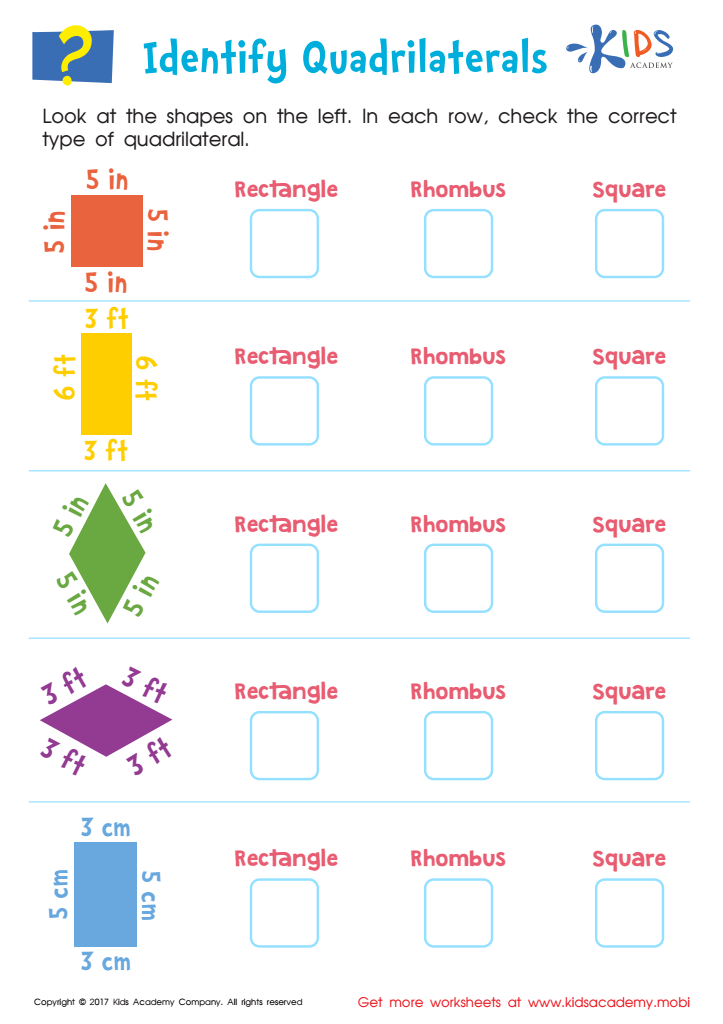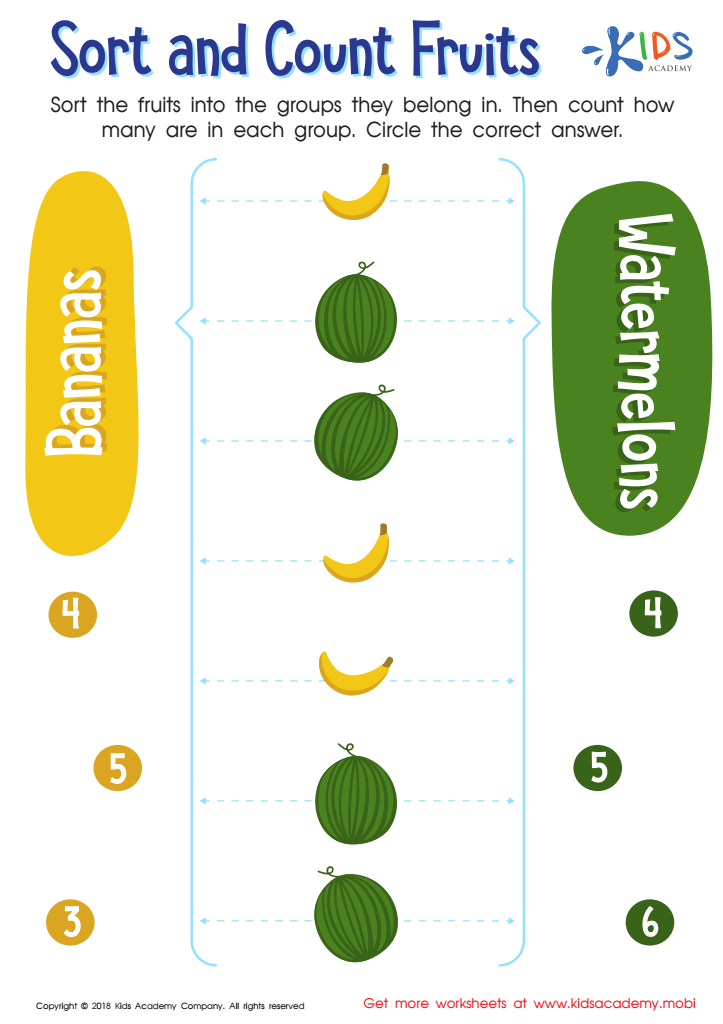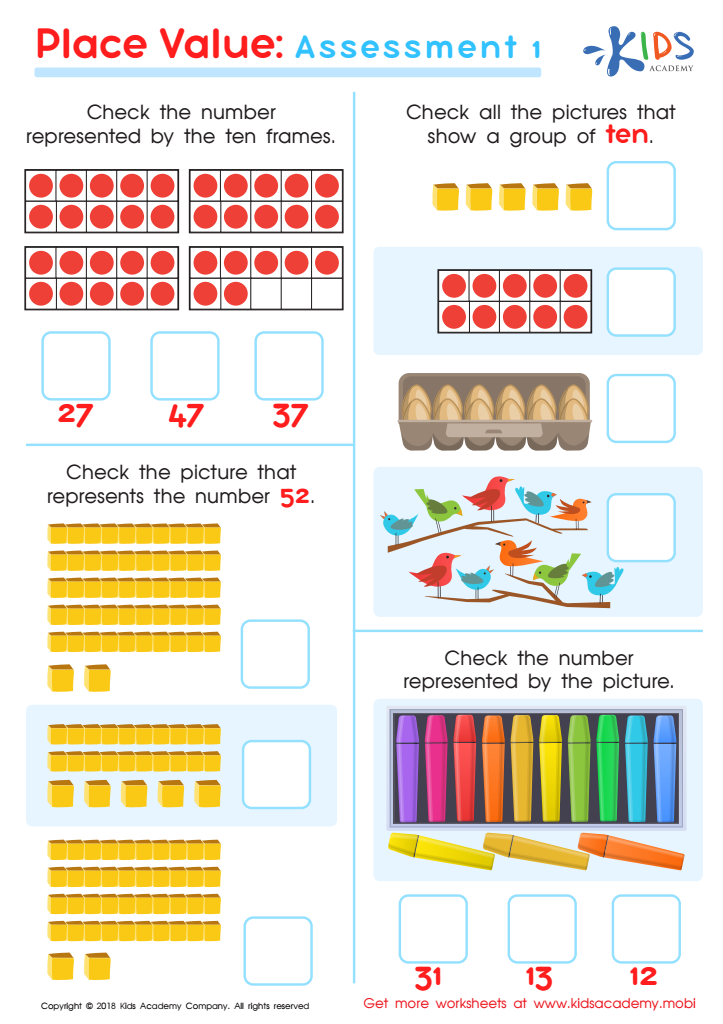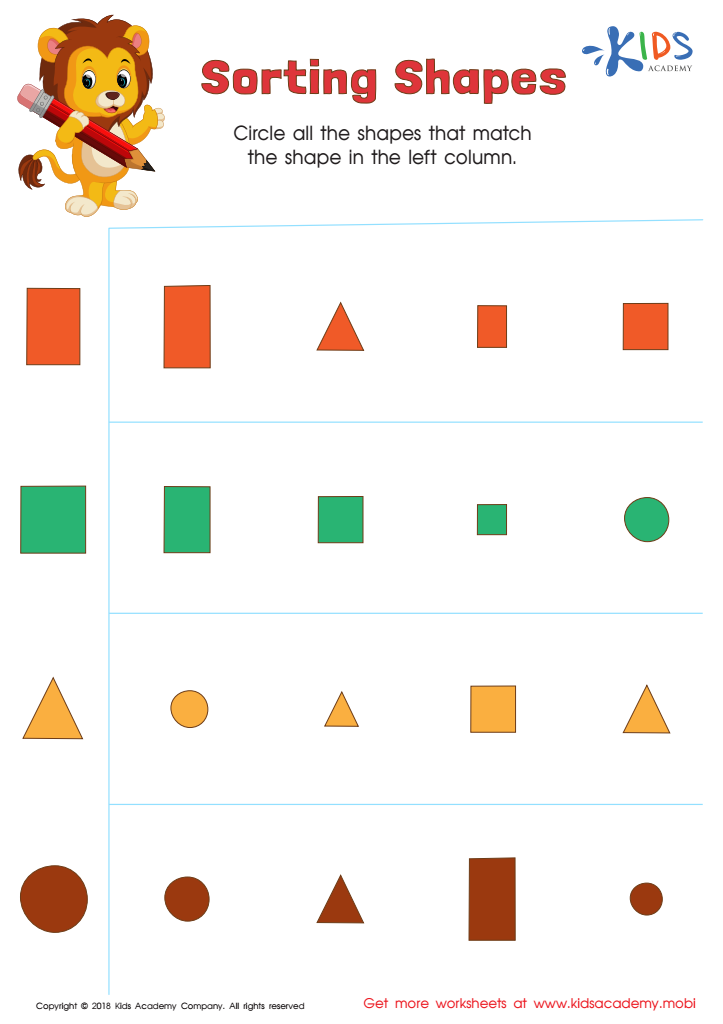Classification skills Math Worksheets for Ages 5-9
4 filtered results
-
From - To
Enhance your child’s analytical and cognitive abilities with our "Classification Skills Math Worksheets for Ages 5-9". Designed to boost learning and understanding, these engaging worksheets help children develop crucial sorting and categorizing skills. Perfectly tailored for young learners, the exercises involve identifying similarities and differences, organizing objects, and understanding sets. Each activity aims to improve both logical-thinking and foundational math skills essential for future academic success. Encourage your 5 to 9-year-old to explore and enjoy math through fun and educational classification activities. Make learning an adventure with our expertly crafted worksheets.


Identify Quadrilaterals Worksheet


Sort and Count Fruits Worksheet


Place Value: Assessment 1 Worksheet


Sorting Shapes - Part 2 Worksheet
Classification skills in math are crucial for children ages 5-9 as they form the foundation for critical cognitive development. At this age, children's minds are incredibly receptive to learning how to sort, categorize, and group objects based on different attributes such as size, shape, color, and number. Understanding classification not only bolsters mathematical intelligence but also sharpens their ability to organize their world logically.
Parents and teachers should prioritize teaching these skills because they intertwine with numerous other educational concepts and real-world scenarios. For instance, sorting and categorizing enhance a child's data-handling skills, making it easier to grasp more complex concepts like set theory, multiplication, and geometry in later years. These skills are also beneficial outside of math—they improve problem-solving, as well as the ability to see patterns and make connections between seemingly unrelated pieces of information.
Furthermore, classification skills develop attention to detail and the ability to follow multi-step instructions, essential competencies for later academic and personal success. Encouraging these skills in enjoyable ways, such as using games, puzzles, and practical activities like organizing toys or sorting edible items, can foster a positive attitude towards learning. In essence, prioritizing classification skills sets the stage for well-rounded intellectual development, making everyday interactions richer and more educationally rewarding.
 Assign to My Students
Assign to My Students





.jpg)













